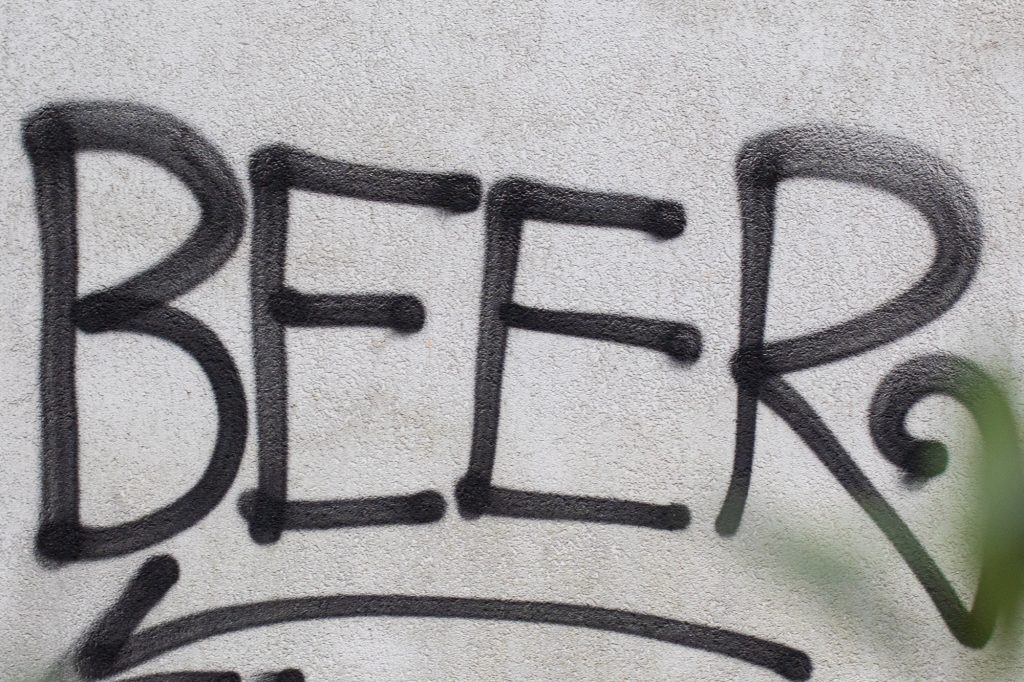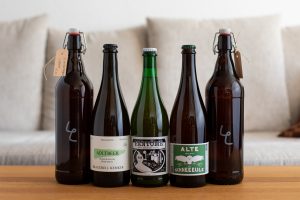
Now, more than ever, we all need a healthy dose of escapism and that’s exactly what I’ve found in the form of some wonderful pieces of beer writing over the last week.
Writing for Good Beer Hunting, Jonny Garret, outlines an issue threatening the future of British pubs: pub companies continuing to charge rent for closed pubs.
…pub companies such as Shepherd Neame, Fuller’s, and Admiral have canceled rents during the crisis. However, around 14,000 pubs are still being charged rent by Marston’s, Ei Group, Greene King, Punch Pubs & Co, Star Pubs & Bars, and other small pub companies—just months after some were accused of effectively artificially inflating their fees.
Over on Stonch’s Beer Blog, Jeff, the landlord of the Ypres Castle Inn in Rye, reflects on the possible longer lasting effects of the current pandemic. Most specifically, if it will spell the end of bar service at British pubs.
Pubs had been identified by the government as hotbeds of virus transmission. When we’re allowed to re-open, that won’t have changed, and the legacy of this period will live on in both in the attitudes of consumers and, perhaps, in specific guidance given, or rules imposed by, government.
Certainly, removing any chance of a crush at the bar – where people can push and shove, and where any uncovered coughs and sneezes will throw droplets on to the area where drinks are prepared – would go some way to make pubs safer in the era of the global pandemic (because this isn’t going to be over any time soon).
It’s not all doom and gloom though, Roger Protz believes ‘A Pint of Landlord Gives Hope For Cask’. The opportunity to drink some cask ale was one of the rationales for a recent trip Steffi and I made to Manchester and Leeds. We had a beautiful pint of Landlord in Whitelock’s Ale House and the Faith we had on cask at Northern Monk’s refectories in both cities was sublimely good. Whatever the solution is, I say, ‘long live cask’.
Five favourite words formed on my lips: “A pint of Landlord, please”. The custodian of the pumps set to and presented me with a glass of Yorkshire’s finest and then said something unbelievable: “That’ll be £3.50”. I gulped in every possible way, got change – a lot of it – from a fiver and proceeded to sip and savour one of the greatest examples of the brewers’ art at a knockdown price.
When did pub quizzes become a thing? Boak and Bailey asked the question, and in my mind after careful consideration over a pint and a bag of crisps, came up with answer. Make a mental note in case the question comes up in a very meta quiz night.
We had a vague idea that the pub quiz was a product of the 1980s or 90s and so were surprised to come across the headline above in a newspaper from the early 1960s.
I have become particularly fond of Salvator from Paulaner over the last couple of years and try to keep a bottle or two in the fridge at all times. Mark Dredge tells the story of this delicious dark lager in ‘The Real Story of Doppelbock’ on his blog Beer Dredge. The post is an out-take from A Brief History of Lager, a book that I consumed with the same kind of fervour I do the beer it was written about.
The real story of what became known as Doppelbock – a strong, malt-sweet lager – is worthy of attention because while it might not be about hungry monks, it does involve mischievous friars and a heavenly beer, plus the brewing and serving of that beer started a great tradition and a very big party, one which has taken place for almost 400 years. It’s also the story of one of Munich’s – and the world’s – most-famous breweries: Paulaner.
If you’re keen for some new beer-related reading material, Jeff Alworth announced on Beervana that he has submitted his manuscript for the second edition of The Beer Bible. The book was originally scheduled for publication in time for Father’s Day 2021, though the coronavirus may affect the date.
And if you can’t wait that long, Pete Brown announced a new book project, The Meanings of Craft Beer: Why The Term ‘Craft Beer’ Is Completely Undefinable, Hopelessly Misunderstood, and Absolutely Essential, due for self-publication on 25th June 2020.





No comments yet.